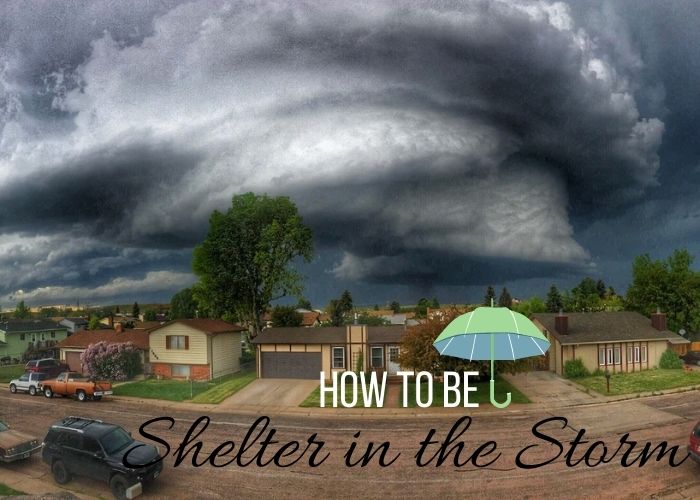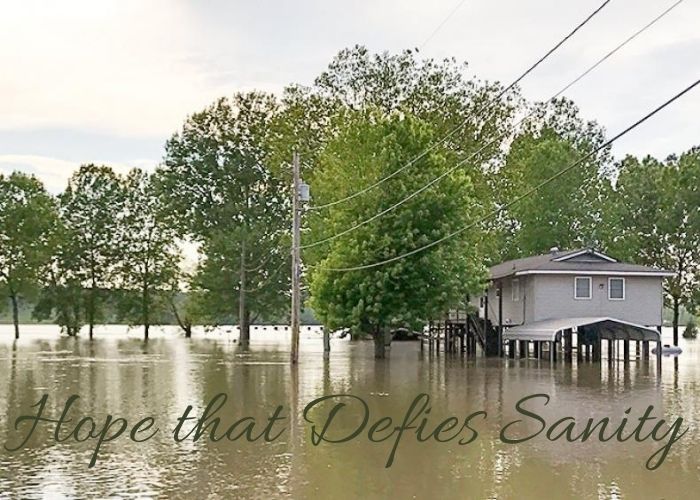
“For because he himself has suffered when tempted, he is able to help those who are being tempted.” Hebrews 2:18
Have you ever stood before the billowing clouds of a stormfront? Did you watch the undulating swirl with awe as as the wind swept over your face and the first drops of rain hit your cheeks? Did you rush for cover when the wind picked up and the branches on the trees began to wave like white flags before a battalion of the enemy? Did you watch from the safety of your living room window as limbs broke and lightening raged across the sky?
I like to read the comments on social media much more than I like to respond. It interests me what people think and write–often with more time spent on the latter. Therefore, I took an interest in a a post from the St. Charles County police department on a crime that had been committed recently and how it impacted the community.
A hunter was shooting for turkey when he accidentally hit a hiker on a trail I frequent in Weldon Springs. How he did that surprises me as I often see people walking and running that trail. With scenic views over the Missouri River, I wondered why any hunter would be pointing a gun in any direction in that area. One of my neighbors wrote, “I’m sure he didn’t do it on purpose and I am praying for the hunter and the victim.” Someone responded, “Whether he did it on purpose is beside the point–the result is the same. And if you want to waste your time praying, go for it.”
This set off a rapid succession of discourse and no end of nastiness.
The thing is, I have often felt like prayer is a waste of time–but no one has ever said that to my face. The internet provides a barrier between acquaintances where they can say what they might never say to ones face with no shame. The thing that struck me about that conversation was how often I had prayed for the individual who wrote “prayer is a waste of time.”
Is this what faith in God looks like from outside? Like I am a muttering fool? For an instant, I regretted ever lifting them up. Why did I spend precious moments of my life meditating on them?
These little “emotional storms” occur with such frequency on social media that last year I started to delete people from my feed who engaged in such behavior. Especially those who identify as Christians. It’s one thing to watch the storm approach–but once the wind and rain touch me personally, I’m out. To the safety of the house, I run.
“Whoever belittles his neighbor lacks sense, but a man of understanding remains silent.” Proverbs 11:12
But as I am learning–even silence speaks volumes. Just ask someone whether or not they got the vaccine.
The temptation to “speak your mind” is as enticing as chocolate buttercream icing. Worse, the temptation to berate and judge those with opposing views is like molten lava cake. I am coming to understand the reason we are all clashing is because we have lost the ability to see we are not always right. We form opinions based on our life experiences and then project them onto others as if our view was the only one. We are not objective; we are subjective. But rather than try to understand the perspective of someone else, we project onto them. Unfortunately, this creates misunderstanding and the inevitable hurt feelings.
What if we started asking questions to seek to understand before we “sounded off?” What if we sought to see the cracks of pain in our neighbors and friends before we applied the brand of medicine we deem best? Some of them need mercurochrome but others need stitches. And none of us know how deep or how infected their wound may be. If we apply wisdom, we remain silent, but if we apply courage–we ask questions. More importantly, if we exemplify love–we heal a wound–even if we walk away choosing to disagree.
I would suggest we are all exposed to the elements–waiting for a storm front to blow in. I have a lot of experience getting wet and ducking for cover, but I’d like to practice being the shelter for my neighbor instead. From their perspective, I may be “wasting my time in prayer” but that doesn’t mean I can’t seek to understand why they feel that way. And it especially doesn’t mean I should stop praying for them.
Standing put in the storm and not becoming the lightening is a discipline. It may take some time to practice being an umbrella instead, but if God is still listening–and answering prayers–I know His promise to “give us more grace” will help.





